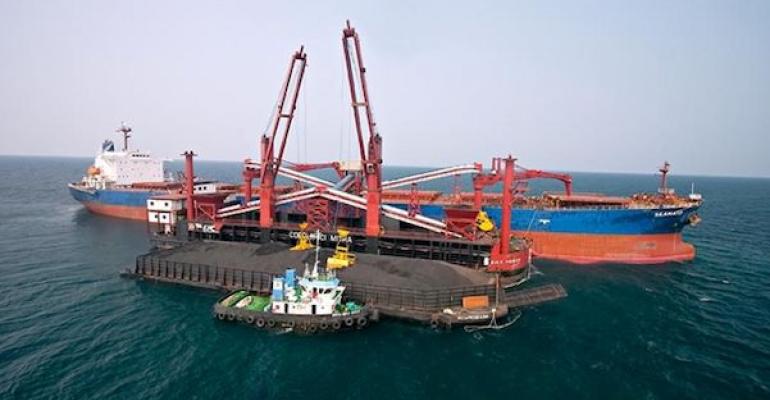In Indonesia, Shi.E.L.D. is currently engaged in several projects including four floating transfer stations owned by ABL Logistics and one floating transfer station owned by Transcoal Pacific. The vessels can handle 50,000 tonnes of coal a day and are all equipped with heavy duty cranes and conveyor systems.
Corrado Cuccurullo, ceo of Shi.E.L.D. and technical director Luca Condini both see the coal transhipment business in Indonesia as steady yet uncertain.
“The future of the coal transhipment business in Indonesia is strictly connected with the future of thermal coal. We have seen the fall of thermal coal price over the past few months which led to production cuts, drop of export and economic challenges in the coal industry including the transhipment sector,” Cuccurullo and Condini jointly said.
They explained that with mine concessions set to expire in the next few years and they will have to be renewed, the Indonesian government might not renew them in order to keep the mines under government control.
“For this reason, power and mining industries are reluctant to invest in long term logistics projects because the government policies for the next years about mine concessions are still unclear,” they said.
In terms of demand, while China has reduced demand for thermal coal, the Indonesian domestic demand has increased as well as the demand from other countries in the region like Vietnam, Malaysia, Pakistan and the Philippines.
This is mainly due to long term plans put in place by these countries to increase their power generation capacity and although the use of renewable resources is increasing, coal remains the most cost-effective fuel source for power generation and is one of the most abundant Indonesia’s natural resources.
“This could also represent a driving factor in the future for the logistics sector as more barging and transhipment services will be required to transport coal to the power plants,” Cuccurullo and Condini said.
Read more: Indonesia will not enforce IMO sulphur rule on domestic fleet
They believed that Indonesian logistics companies can overcome those local challenges by providing integrated logistics services including both barging and transhipment so as to optimise management costs and raise efficiency of the coal logistic chain. This would in turn reduce the overall logistics costs and enhance the value of the logistics provider.
The logistics provider can diversify their activity offering transhipment services for other commodities in other parts of the world, such as bauxite in Guinea, coal in Vietnam and Russia, and iron ore in the Middle East.
“In conclusion we see the coal transhipment business in Indonesia as steady and uncertain, with mining and logistics companies waiting for a more clear scenario about the government decisions to be taken in the next months and keeping the attention to the rest of world to extend their activities beyond the domestic borders,” they said.
Established in 2018, Shi.E.L.D. is a spin-off of Coeclerici Logistics with headquarters in Milan and a branch office in Indonesia’s Balikpapan.
Copyright © 2024. All rights reserved. Seatrade, a trading name of Informa Markets (UK) Limited. Add Seatrade Maritime News to your Google News feed.


